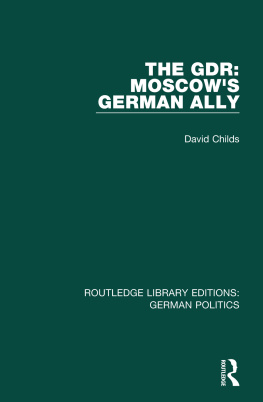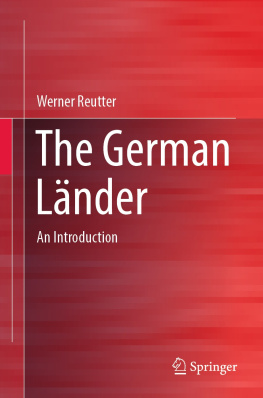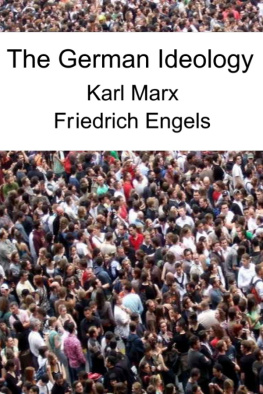Gary Bonham - Ideology and Interests in the German State (Rle: German Politics)
Here you can read online Gary Bonham - Ideology and Interests in the German State (Rle: German Politics) full text of the book (entire story) in english for free. Download pdf and epub, get meaning, cover and reviews about this ebook. year: 2014, publisher: Routledge, genre: Politics. Description of the work, (preface) as well as reviews are available. Best literature library LitArk.com created for fans of good reading and offers a wide selection of genres:
Romance novel
Science fiction
Adventure
Detective
Science
History
Home and family
Prose
Art
Politics
Computer
Non-fiction
Religion
Business
Children
Humor
Choose a favorite category and find really read worthwhile books. Enjoy immersion in the world of imagination, feel the emotions of the characters or learn something new for yourself, make an fascinating discovery.
- Book:Ideology and Interests in the German State (Rle: German Politics)
- Author:
- Publisher:Routledge
- Genre:
- Year:2014
- Rating:5 / 5
- Favourites:Add to favourites
- Your mark:
- 100
- 1
- 2
- 3
- 4
- 5
Ideology and Interests in the German State (Rle: German Politics): summary, description and annotation
We offer to read an annotation, description, summary or preface (depends on what the author of the book "Ideology and Interests in the German State (Rle: German Politics)" wrote himself). If you haven't found the necessary information about the book — write in the comments, we will try to find it.
Gary Bonham: author's other books
Who wrote Ideology and Interests in the German State (Rle: German Politics)? Find out the surname, the name of the author of the book and a list of all author's works by series.
Ideology and Interests in the German State (Rle: German Politics) — read online for free the complete book (whole text) full work
Below is the text of the book, divided by pages. System saving the place of the last page read, allows you to conveniently read the book "Ideology and Interests in the German State (Rle: German Politics)" online for free, without having to search again every time where you left off. Put a bookmark, and you can go to the page where you finished reading at any time.
Font size:
Interval:
Bookmark:

by Routledge
2 Park Square, Milton Park, Abingdon, Oxon, OX14 4RN
711 Third Avenue, New York, NY 10017
A catalogue record for this book is available from the British Library
elSBN: 978-1-315-72630-4 (Set)
ISBN: 978-1-138-83963-2 (Volume 1)
elSBN: 978-1-315-73332-6 (Volume 1)
The publisher has gone to great lengths to ensure the quality of this reprint but points out that some imperfections in the original copies may be apparent.
The publisher has made every effort to trace copyright holders and would welcome correspondence from those they have been unable to trace.
New York & London 1991
All Rights Reserved
Ideology and interests in the German state/ Gary Bonham.
p. cm.[Modern European history. Germany and Austria]
Originally presented as the author's thesisUniversity of California, Berkeley, 1985 .
Includes bibliographical references.
ISBN 0-8153-0473-0 [alk. paper]
1. GermanyPolitics and government1888-1918.2. BureaucracyGermanyHistory.
I. Title. II. Series.
DD228.5.865 1991
320.943dc20 91-17759
Manufactured in rhe United States of America
Font size:
Interval:
Bookmark:
Similar books «Ideology and Interests in the German State (Rle: German Politics)»
Look at similar books to Ideology and Interests in the German State (Rle: German Politics). We have selected literature similar in name and meaning in the hope of providing readers with more options to find new, interesting, not yet read works.
Discussion, reviews of the book Ideology and Interests in the German State (Rle: German Politics) and just readers' own opinions. Leave your comments, write what you think about the work, its meaning or the main characters. Specify what exactly you liked and what you didn't like, and why you think so.











